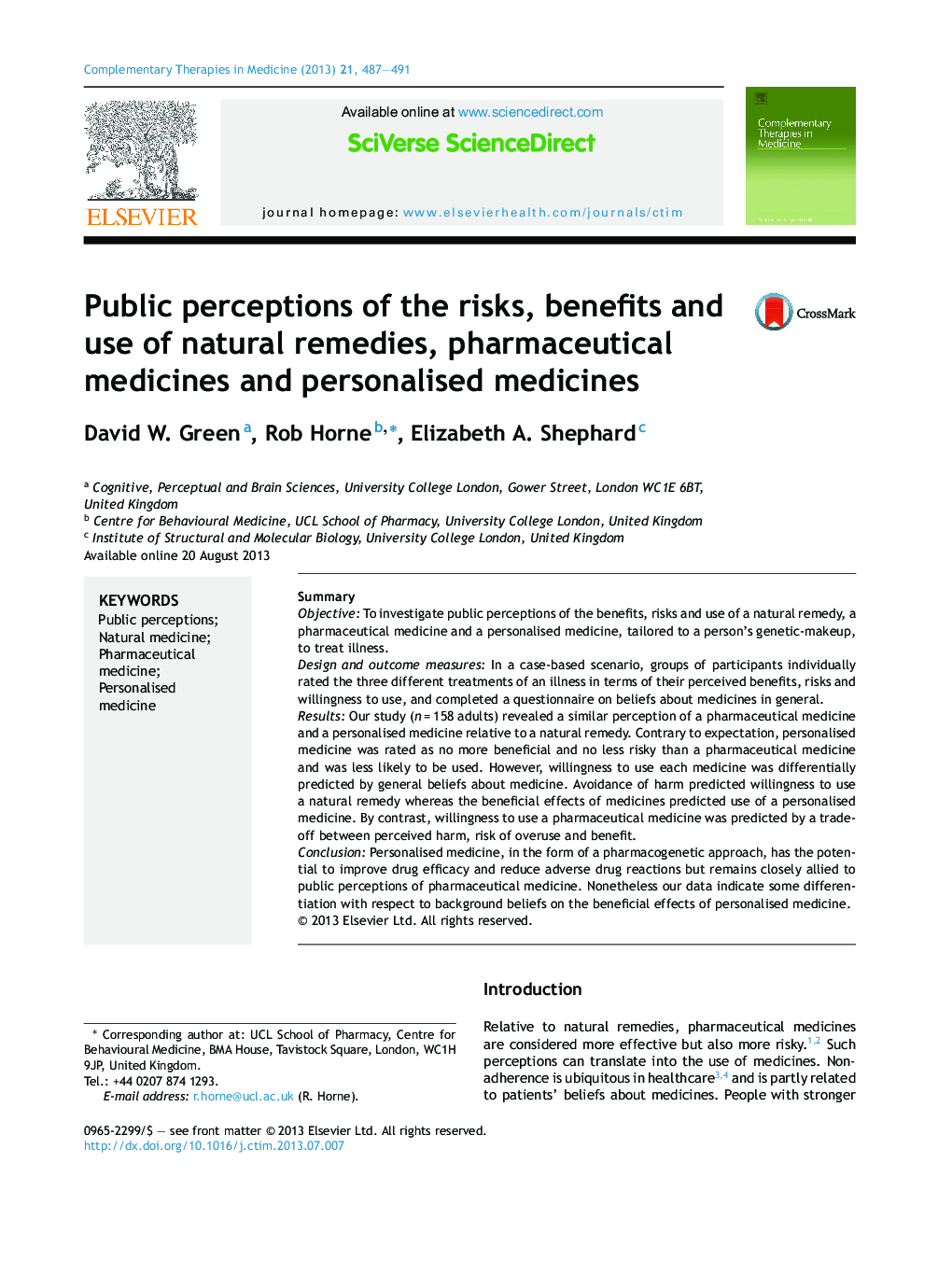| Article ID | Journal | Published Year | Pages | File Type |
|---|---|---|---|---|
| 5865323 | Complementary Therapies in Medicine | 2013 | 5 Pages |
SummaryObjectiveTo investigate public perceptions of the benefits, risks and use of a natural remedy, a pharmaceutical medicine and a personalised medicine, tailored to a person's genetic-makeup, to treat illness.Design and outcome measuresIn a case-based scenario, groups of participants individually rated the three different treatments of an illness in terms of their perceived benefits, risks and willingness to use, and completed a questionnaire on beliefs about medicines in general.ResultsOur study (n = 158 adults) revealed a similar perception of a pharmaceutical medicine and a personalised medicine relative to a natural remedy. Contrary to expectation, personalised medicine was rated as no more beneficial and no less risky than a pharmaceutical medicine and was less likely to be used. However, willingness to use each medicine was differentially predicted by general beliefs about medicine. Avoidance of harm predicted willingness to use a natural remedy whereas the beneficial effects of medicines predicted use of a personalised medicine. By contrast, willingness to use a pharmaceutical medicine was predicted by a trade-off between perceived harm, risk of overuse and benefit.ConclusionPersonalised medicine, in the form of a pharmacogenetic approach, has the potential to improve drug efficacy and reduce adverse drug reactions but remains closely allied to public perceptions of pharmaceutical medicine. Nonetheless our data indicate some differentiation with respect to background beliefs on the beneficial effects of personalised medicine.
